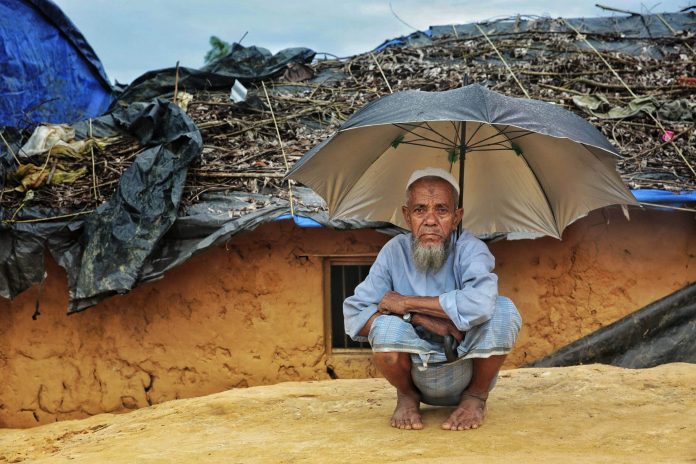Critical of the conditions the Rohingyas are facing in refugee camps in Bangladesh, members of the European Parliament on February 12 called for increased efforts to resolve the crisis.
Around 688,000 Rohingyas have fled to Bangladesh over the last five months, escaping violence in Myanmar amid accusations against the army of ethnic cleansing and human rights violations.
Speaking to the Spanish news agency EFE, German MEP Joachim Zeller said: “It’s a huge challenge for Bangladesh and also for international organisations. We must strengthen our efforts to give support especially to the organisations involved here.”
Zeller is a member of the European Parliament’s Subcommittee on Human Rights. He and other members of the subcommittee are slated to travel to Myanmar on February 13 to meet with authorities in the country.
According to EFE, the chairman of the subcommittee, Pier Antonio Panzeri, said their visit is a sign of their commitment to finding a solution to the crisis.
Commenting on the visit, Anita Schug, spokesperson of the European Rohingya Council said: “This is a key opportunity for EU officials to see for themselves the dire situation faced by the Rohingya, who carry the scars of unimaginable destruction committed against them by the Burmese military and local Rakhine vigilantes.”
“The visit is a unique occasion for EU representatives to assert that Myanmar’s military and civilian leadership adhere to the demands of the Rohingya people and international community to end the violence, stop ethnic cleansing, and provide full access to Rakhine State for UN aid agencies, the UN Fact-Finding Mission, UN Special Rapporteur Yanghee Lee, and local and international media. If the authorities do not abide by these demands, the EU must implement targeted sanctions and other punitive measures.”
According to Schug, the “EU has the means and experience to help ensure that further discrimination does not occur by holding those responsible to account”.
The United Nations and various human rights organisations have said there is clear evidence of rights abuses in Myanmar, with the UN High Commissioner for Human Rights calling the army’s operations “ethnic cleansing” and saying there were indications of “genocide”.

